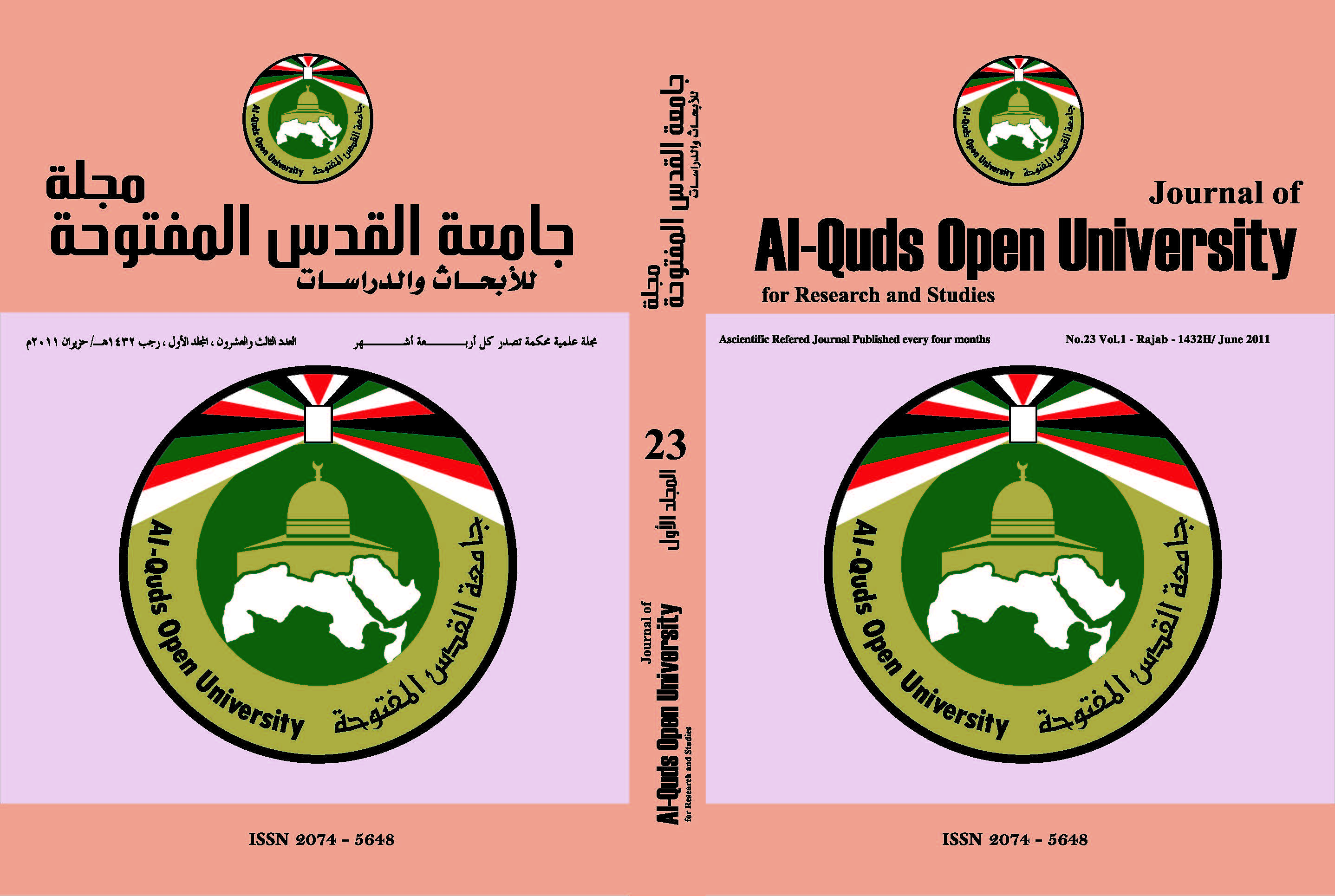Ex Vivo Assessment of Nerium Oleander (Defla) Toxicity and Silybum Marianum (Khurfeish) Antidotal Virtues
Keywords:
Ex Vivo Assessment, Nerium Oleander (Defla), Toxicity, Silybum Marianum (Khurfeish), Antidotal VirtuesAbstract
This study aimed at analyzing the exercises and activities of “English
for Palestine” textbook for the Tenth Grade and investigating teachers’ and
students’ attitudes towards the appropriateness and usefulness of the activities
and exercises. The study also aimed to examine the effect of sex, experience
and qualification variables on these attitudes. The study sample consisted of
25 male teachers and 34 female teachers chosen randomly, in addition to 59
male students and 52 female students.
To answer the questions of the study, the researcher analyzed the
two parts of «English for Palestine» textbook: the Student Book and the
Workbook. Moreover, a 29- item questionnaire was administered among the
two samples.
The results indicated that:
1. The content analysis of the exercises and activities indicated that they
fulfill the textbook objectives and develop the language skills and the
study skills which can be used for effective communication. These
exercises and activities, moreover, encourage critical thinking and
classroom interaction.
2. The teachersʼ attitudes towards the usefulness and appropriateness of
exercises and activities were high (positive) whereas the studentsʼ
attitudes were moderate.
3. There were statistically significant differences between teachersʼ attitudes
and studentsʼ attitudes towards the usefulness and appropriateness of the
exercises and activities in favor of the teachers.
4. There were no statistically significant differences between studentsʼ
attitudes towards the usefulness and appropriateness of the exercises and
activities due to sex.
5. There were no statistically significant differences between teachers’
attitudes towards the usefulness and appropriateness of the exercises and
activities due to sex, experience and qualification variables.
Downloads
Published
How to Cite
Issue
Section
License
- The editorial board confirms its commitment to the intellectual property rights
- Researchers also have to commit to the intellectual property rights.
- The research copyrights and publication are owned by the Journal once the researcher is notified about the approval of the paper. The scientific materials published or approved for publishing in the Journal should not be republished unless a written acknowledgment is obtained by the Deanship of Scientific Research.
- Research papers should not be published or republished unless a written acknowledgement is obtained from the Deanship of Scientific Research.
- The researcher has the right to accredit the research to himself, and to place his name on all the copies, editions and volumes published.
- The author has the right to request the accreditation of the published papers to himself.













_2.png)
_.png)
_2.png)
_1.png)
_.png)

